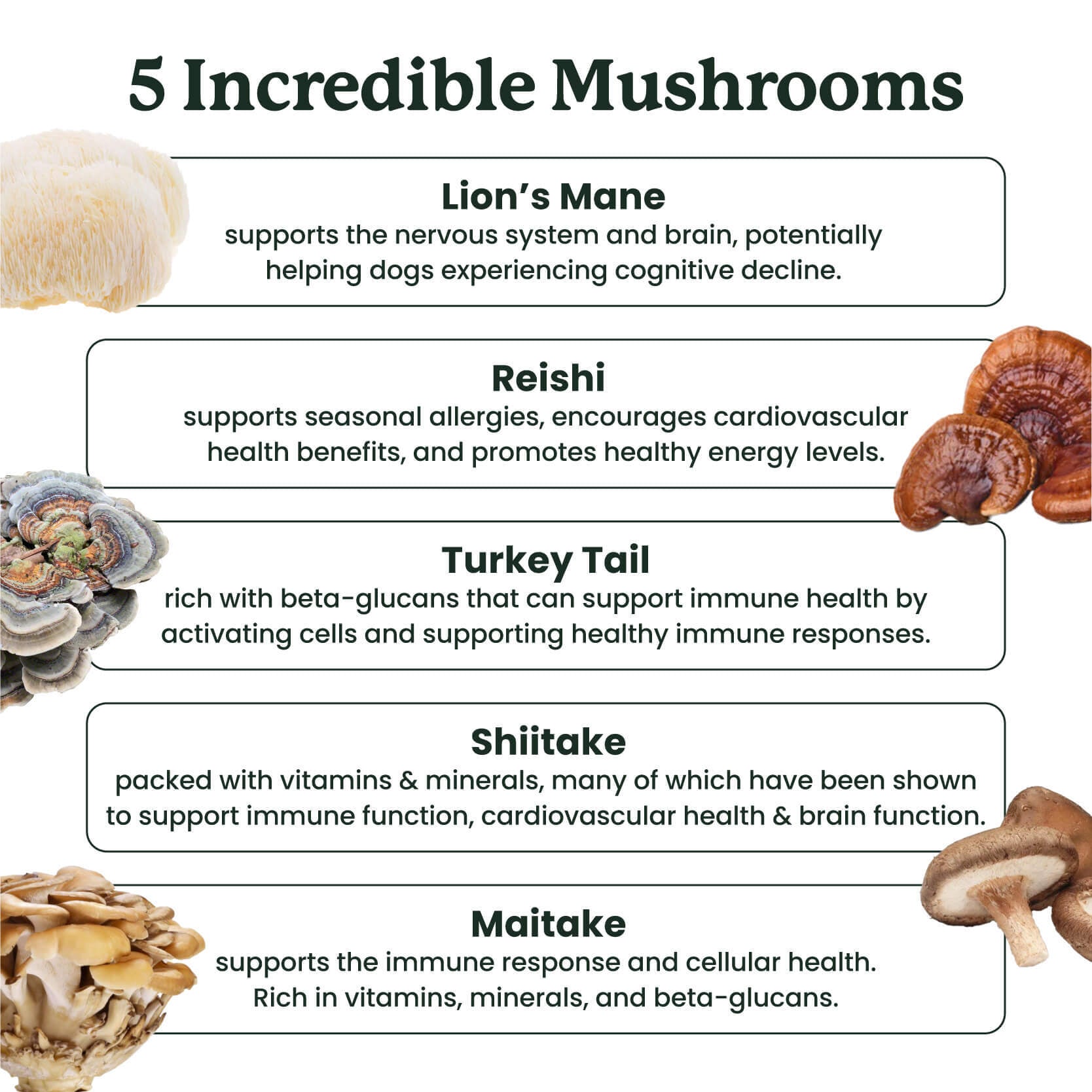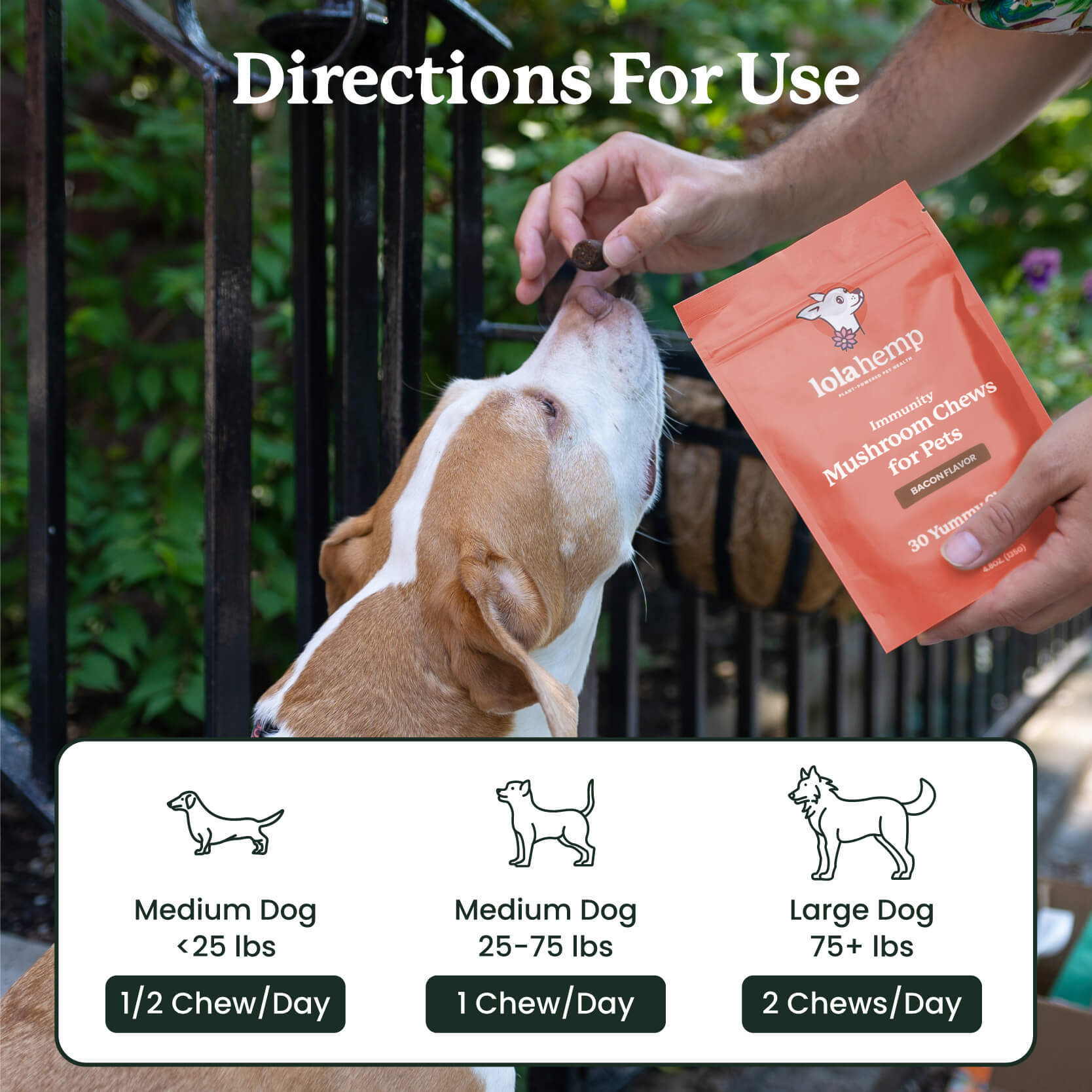It’s always a little confusing to see a dog gleefully dart to his favorite patch of grass and start munching. For some dogs, this happens even if they vomit that grass right back up time after time.
This begs a set of questions:
"why is my dog eating grass? What in the world is going on here? Are dogs supposed to eat grass? Do they enjoy it? Most importantly, is it safe for dogs to eat grass?"
This article will cover everything you need to know and, hopefully, answer all of your questions. If you're looking for a short answer, dogs sometimes eat grass for no reason, but it can indicate a stomach issue or digestive disorder in other cases.
- Do Some Dogs Physically Need to Eat Grass?
- Is Grass-Eating Psychological?
- Do Dogs Eat Grass Instinctually?
- Is Grass-Eating Enjoyable?
- How Normal is It for Dogs to Eat Grass?
- Are There Health Benefits?
- Reasons Your Dog Eats Grass
- Do Dogs Vomit After Eating Grass?
- Is Grass Bad for Dogs to Eat?
- How to Stop This Behavior
- Should I Contact My Vet When My Dog Eats Grass?
- So, Should Dogs Be Eating Grass?
- Frequently Asked Questions about Dogs Eating Grass
Do Some Dogs Physically Need to Eat Grass?
Dogs might eat grass in response to a lack of fiber in their diets. Fiber is known as “roughage,” a type of food that the body doesn’t digest. Rather than being digested and processed, roughage moves through the body and frees up the digestive system to do its work.
We all need a little roughage, and dogs are no exception. Now, does your dog know that eating grass will help free up their digestive system? It’s unlikely, but the answer to that isn’t totally clear.
One commonly-held belief is that dogs eat grass when they have an upset stomach, either to induce vomiting or to speed up the digestive system. There’s no research to support this, although it hasn’t been totally disproven.
Odds are that they’re getting dietary fiber in different ways, so it’s not as if dogs need to eat grass. Our four-legged canines are omnivores, so eating the right kinds of foliage, fruits, and vegetables is a natural thing for them to do. Grass might just be something they’ve developed a taste for.
Plus, grass is present nearly everywhere dogs go. Once they know they like the taste of grass, they can have it pretty much any time they’re outside.

Is Grass-Eating Psychological?
On the other hand, grass-eating behavior might be one little piece of your dog’s unusual and lovable psychology. Sprinting to their favorite patch of grass and chowing down could just be a fun way to pass the time.
If your dog is bored or curious, they might eat grass as a way to pass the time! Alternatively, grass-eating could be an emotional coping mechanism. If your dog is anxious, chewing on grass might be a way to calm the nerves in the same way that chewing a piece of gum might calm your nerves.
If you give your dog a lot of attention for eating grass, they might learn that grass-eating is a surefire way to turn the spotlight on them. Dogs are keen observers of our behavior, and they’re likely to reproduce any act that generates a lot of attention.
In this way dogs might eat grass for the same reasons that cats gently push cups of water to the edges of countertops; it’s going to get them attention.
Do Dogs Eat Grass Instinctually?
Domesticated dogs have been gradually introduced to our lifestyles, evolved to be able to digest human foods such as grains, and generally sculpted to be the perfect human companions.
That doesn’t mean that they don’t still have a few instincts leftover from their days as wolves, and wolves aren’t strict carnivores. Most of their nutrients came from prey, but herbivorous prey would always come packaged with some grasses, fruits, nuts, seeds, and plenty of nutrient-dense foliage.
If a wolf or wild dog doesn’t get all of the nutrients it needs from the stomach contents of its prey, it will start to eat grass or other plants to account for the deficit.
So, your dog could instinctually turn to grass if there’s a deficit in their diet, although it could also just be an innate behavior leftover from their ancestors. If your dog is healthy and well-fed with a balanced diet, the tendency to eat grass might be something that comes naturally to your dog and poses no issue at all.
If this is the case, make sure that you have a parasite prevention medication in place and ensure that the grass your dog eats isn’t chemically treated. So long as eating grass doesn’t make your dog sick, this behavior shouldn’t be an issue.

Is Grass-Eating Enjoyable?
Grass is an interesting thing to chew on, and it might pique your dog’s curiosity. It might even taste really good to your dog.
The act of reaching down and pulling it out of the ground provides a unique challenge as well, and all of these things together could simply amount to a really great time for your dog. If your dog excitedly flops down in your yard and rolls around trying to capture grass in its mouth without a care in the world, they’re probably really enjoying it.
How Normal is It for Dogs to Eat Grass?
There have been plenty of small-scale studies on grass-eating behavior in dogs, and pretty much all of them report that most dogs studied show some interest in eating grass. We’ve seen numbers that suggest as many as 80% of dogs will eat grass from time to time.
So, while it’s not universal behavior, it’s very normal for your dog to eat grass.
Are There Health Benefits?
Grasses naturally produce chlorophyll and fiber, both of which are good for your dog. Chlorophyll can help clean your dog’s blood, subdue the scent of pheromones, and help with digestion. Fiber, of course, is also an essential digestive aid.
That said, your dog is probably getting all of the chlorophyll and fiber they need in their normal diet. This means that eating grass isn’t likely to create any distinct physical health benefits apart from the ones they’re already getting from their food bowl.
Psychologically, though, your dog could benefit from the process of eating grass. If they use this as a self-soothing method or they’re truly enjoying eating grass and it’s not harming them, your dog might benefit simply from the enjoyment they get.
Reasons Your Dog Eats Grass
As we’ve discussed, grass-eating could come about for a number of reasons.
The following are the most likely reasons your dog has for eating grass:
- Enjoyment
- Instinct
- Need for fiber
- Curiosity
- Attention
- Self-soothing
It’s a very normal behavior, and each dog might have their own reason for doing it. To truly figure out why your specific dog is eating grass, you might have to do some investigating with the help of your veterinarian.

Do Dogs Vomit After Eating Grass?
It’s estimated that only about 25% of dogs who eat grass vomit it up afterwards. So, while some do vomit grass, the majority do not.
The vomiting in 25% of dogs could be the result of a number of things. It might not be a good fit for your dog’s particular digestive system, there could be something in the grass or on the grass that induces vomiting, your dog could be eating huge clumps of grass that aren’t easily digestible, or the unique texture and flavor could cause your dog to vomit.
These are all possibilities. If your dog is eating grass and vomiting on a regular basis, it’s best to run that by your veterinarian. It’s likely not a cause for concern, but this could be risky.
Is Grass Bad for Dogs to Eat?
While it’s natural for dogs to eat grass, it’s not always safe for them to do so in the modern world.
It can be dangerous for humans to walk around barefoot on treated lawns, so imagine how damaging chemically-treated grass could be to your dog’s health. The short answer is that grass is safe to eat, but most lawns are not safe for your dog to eat from.
If there are chemicals and pesticides present in your lawn maintenance routine, your dog should not eat your grass. If your dog loves to chew on grass regardless of where you are, it’s your responsibility to manage your lawn in different ways. Keeping up with the Joneses and displaying a bright green, flawless lawn is not worth risking your dog’s health over.
Further, grass can be home to different diseases, viruses, and parasites. It’s important that your dog is vaccinated and dewormed on a regular basis if they’re making a habit of eating grass.
How to Stop This Behavior
It’s important to teach your dog that grass isn’t an everyday snack, particularly when most grass they see is treated with chemicals or hiding some kind of dangerous parasite.
The behavior can be stopped with behavioral modification training, using “heel” commands or something similar.
Should I Contact My Vet When My Dog Eats Grass?
If your dog starts to show any unusual symptoms after eating grass, call your veterinarian. It’s possible for them to show fatigue, drooling, loss of appetite, or any number of other symptoms. These are usually the result of something dangerous on the grass rather than the grass itself, so it’s very important that you talk to a professional.
If your dog is fixated on grass and doesn’t stop eating it, this is cause for concern as well. Eating too much grass could be a bad thing for your dog’s digestive system, and it puts them at higher risk of eating pesticides or picking up a parasite.

So, Should Dogs Be Eating Grass?
Ultimately, while it’s normal for your dog to eat grass, it’s not essential. If you’re sure that the grass your dog is eating is free from harmful pesticides, it’s okay to let them munch so long as you’re taking measures to protect them from worms, parasites, and disease.
If you’re not sure about the grass and you haven’t established a way to protect them from those dangers, it might not be the best idea to let them eat grass. If you’re at all uncertain, give your veterinarian a call to see what they have to say.
So, can dogs eat grass? Yes. Should dogs eat grass? It depends, so it's always best to be on the safe side and prevent your dog from eating any grass that may contain chemicals. If you're out in nature and your dog is eating grass, make sure that they're on a deworming program and they're up-to-date with their vaccines.
Frequently Asked Questions about Dogs Eating Grass
Why do dogs eat grass?
Dogs may eat grass for many reasons, including curiosity, boredom, instinct, or a desire for fiber. In some cases, it may be linked to mild digestive discomfort.
Is it normal for dogs to eat grass?
Yes. Studies suggest up to 80% of dogs eat grass occasionally, and it’s typically considered a normal canine behavior unless accompanied by illness or vomiting.
Should I stop my dog from eating grass?
Not always. If the grass is untreated and your dog shows no symptoms, it’s usually safe. However, discourage grass eating if you use pesticides or lawn chemicals.
Can grass make dogs sick?
Grass itself is not harmful, but treated lawns or contaminated areas can cause health issues. Watch for vomiting, drooling, or lethargy after grass eating and contact your vet if symptoms occur.
Do dogs vomit after eating grass?
About 25% of dogs vomit after eating grass. It’s often harmless, but frequent vomiting should be evaluated by a veterinarian to rule out digestive problems.








